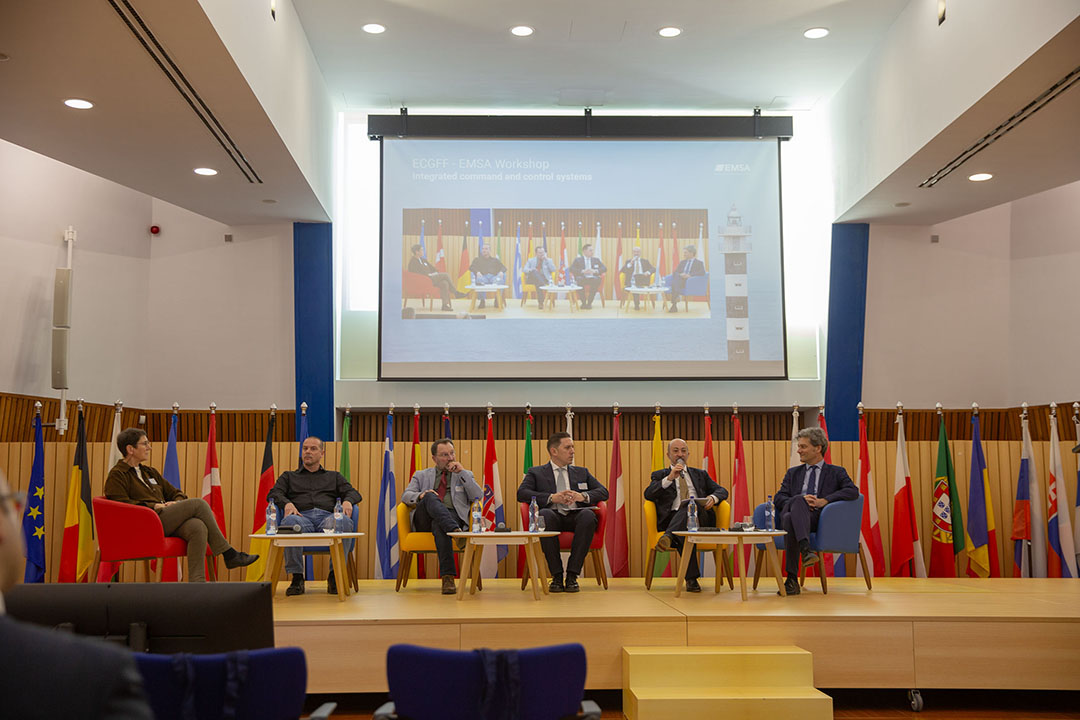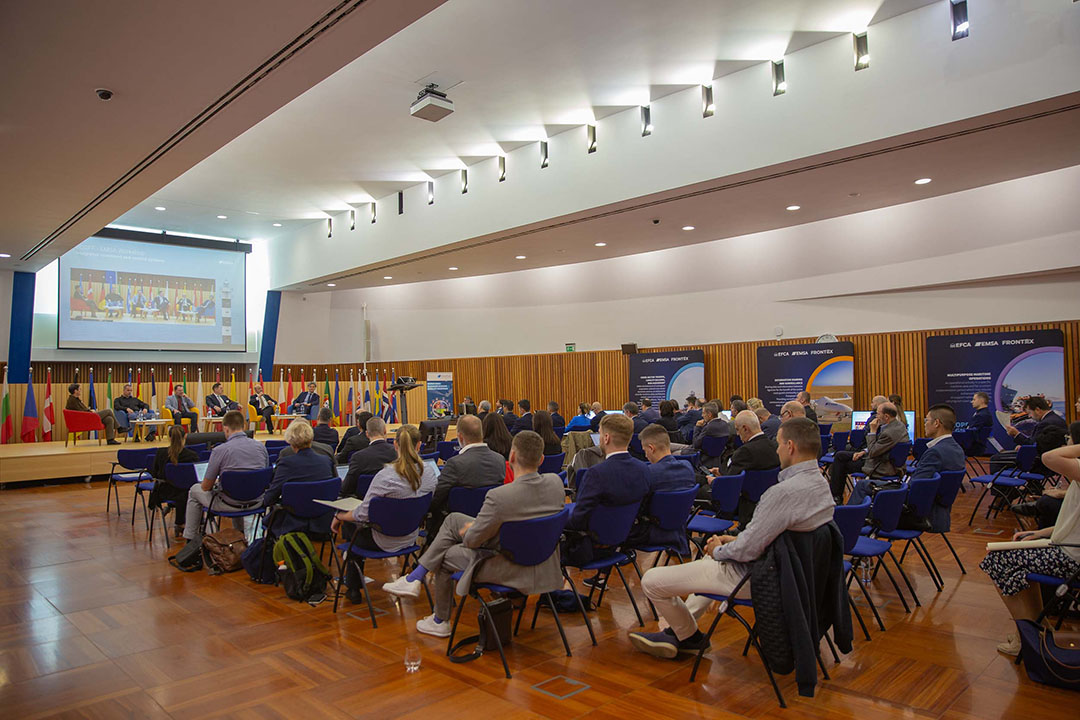CISE discussed at the ECGFF – EMSA Workshop on 21 March
The need for enhanced maritime information sharing and the role of CISE in this respect was discussed during the ECGFF – EMSA Workshop held in Lisbon on 21 March. A dedicated panel, comprising experts from various maritime authorities, focused on the use cases of CISE and the added value that CISE brings by enhancing maritime situational awareness in maritime surveillance operations.

On 20-21 March, within the context of the European Coast Guard Functions Forum, EMSA in cooperation with the Portuguese Chairmanship organized a workshop entitled “Exploring Cutting-Edge Tools and Technologies to Enhance Coast Guard Operations: A Workshop on Maritime Situational Awareness”. CISE was addressed during the session “Integrated command and control systems”.
In the introductory remarks, Mr Dario Vaschetto from the European Commission’s DG MARE emphasized the role of CISE in the context of increasing maritime threats and the need for better preparedness as laid out in the revised EU Maritime Security Strategy (EUMSS). Mr Vaschetto reminded that CISE steps up interoperability among all the different maritime sectors and fosters civil-military cooperation through the exchange of unclassified and classified information. Moreover, CISE contributes to a more sustainable blue economy and more secure seas around Europe.
The panellists shared various examples of the use of CISE in maritime surveillance operations. Mr Marco Chiannella, Commander of the Italian Coast Guard, mentioned the possibility to share through CISE a wide array of data to enhance maritime domain awareness and respond to such situations at sea as illegal migration and Search and Rescue operations, and that the Italian Coast Guard is currently sharing within CISE all the data related to migratory events. Mr Patrice Lesueur, the inspector of French Customs, explained how the sharing of information through CISE in real-time and close cooperation between several authorities’ operational centres can support the fight against illegal drug trafficking.
Further, Mr Primož Bajec, the captain of the Slovenian Maritime Administration, presented how CISE is going to be used to gather additional information about a particular area of interest where a maritime critical infrastructure is located. Mr Primož noted that thanks to CISE, it is possible to re-use the existing data collected by one authority and shared with other authorities across borders and sectors.
Finally, Ms Florence Wagner, Navy commander working at the French Secretariat general for the Sea, presented how CISE-ALERT project is aiming to start the real data exchange among the maritime operational centres. To this end, on top of the scenarios presented above, the involved authorities are developing a number of scenarios to be tested during operational trials.
As the main driver to join CISE considering its voluntary nature, the panellists mentioned the possibility to obtain additional data on top of what maritime authorities can obtain from the existing mandatory systems. Moreover, CISE can foster and facilitate the current cooperation among maritime authorities. It was underlined that CISE should be considered as a complementary tool to the existing systems and sectoral networks. Finally, it was also noted that although joining CISE is voluntary, there is a strong political commitment to this initiative at EU Member States’ level (e.g., EUMSS, Strategic Compass for Security and Defence).


